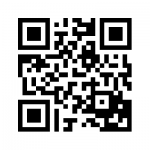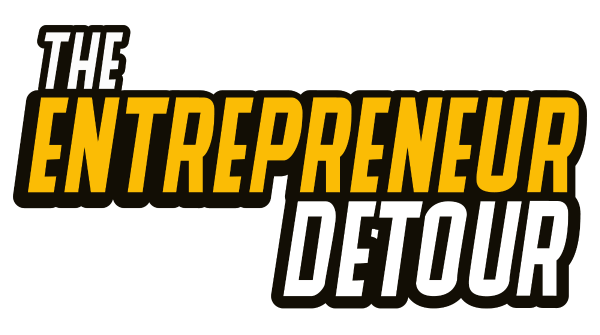Chapter Two
THE DEFINITION OF AN ENTREPRENEUR

The Definition of an Entrepreneur
For some unknown reason, I’ve always been attracted to business. I grew up during the 1960s and 1970s, and the term entrepreneur wasn’t common back then. I wasn’t sure what it meant to others, but when I first heard someone was an entrepreneur, I thought it just meant they had some good ideas but weren’t necessarily a real businessperson.
I was raised in the working-class neighborhood of the small town of Bishop, California. My father, Don, worked at the phone company. My mother, Jody, was a teacher at the elementary school located just two streets over from the house I grew up in.
Bishop is an isolated town situated in the Owens Valley, one of the two valleys in the contiguous United States that has mountain ranges over fourteen thousand feet on either side. Bishop is 250 miles northeast of Los Angeles and is part of the Eastern Sierra outdoor recreational area, famous for snow skiing, sport climbing, mountain biking, horseback riding, and great fishing in nearby mountain lakes and streams. People in Southern California would save all year long just to vacation in an area I lived in every day.
There was a neighbor boy I admired who lived four houses down from me. Robbie Witt was my age, and he was a kid-businessman. He had a newspaper route, and I thought that was the coolest thing.
The way I remember, I thought it was amazing that he actually got paid to ride his bicycle. In fact, I thought it was so great that I would ride my Schwinn bike with him and help him throw those papers every chance I got. I didn’t care about getting paid or not. Even at a young age, I just loved the idea of “working.”
Then, as luck would have it, when Robbie’s parents took him on vacation, the only one who knew which houses got papers on his route was me. Score! My first business transaction! This highlights my favorite definition of luck, commonly attributed to the Roman philosopher Seneca: “Luck is when opportunity meets preparation.”
You should have seen how proud I was to be the one responsible for throwing those papers all by myself. I turned it into a game and would try to get those products as close to the front doors as possible. To this day, it irks me when I see a newspaper at the edge of a driveway. Such poor customer service.
For those of you baby boomers or older, you ought to remember that when we grew up, “work” was considered a positive thing. I don’t believe the bestselling book The 4-Hour Workweek would have been nearly as popular back then as it is today.
I am so thankful that those odd jobs I did in my early childhood laid the foundation for a work ethic I still build on to this day. Riding my bike after school to Spoor’s Sheet Metal Shop to sweep the floors with my classmate Jeff Spoor gave me a strong sense of accomplishment. And I thoroughly enjoyed painting fences at the Sportsman Inn Motel with my friend Clay Greer, the owner’s son.
LESSON LEARNED
Then, the summer before my first year of high school, it happened. I landed the most coveted summer job (in my mind) that any teenager could get in Bishop: working as a gas station attendant at Tony’s 76. Yes, there was a time when all gas stations were full-service. Now, only those living in Oregon and New Jersey know the joy of not having to get out of your car to fill your own gas tank (since it’s illegal to do so).
Granted, the general manager of the gas station owed my father a favor because Dad had gotten the manager’s son a job at the phone company. Whatever the cause, I got to spend forty hours every week pumping gas, washing windshields, and checking oil with some very popular Bishop High upperclassmen. I had the privilege of working at Tony’s every summer during my high school years, which enabled me to save the money I needed to apply toward my upcoming college experience.
I learned many valuable life lessons over those summers, but one will always stand out. I can still clearly remember it.
I dropped by the station on a Sunday afternoon to check the schedule to see what hours I’d be working over the next two-week period. To my utter dismay, my name was no longer on the schedule.
I went into the owner’s office to point out the obvious oversight. That’s when Mr. Johnson taught me a powerful lesson I’ll never forget. As I recall, Mr. Johnson said, “I’ve seen that you’ve been sick on one day each of the last several weeks.”
Oops. Busted!
Mr. Johnson then told me, “Since you like having time off to do other things with your friends, you can have some extra time off to have fun with your buddies.”
He finished by telling me to “think about if you really want to work here and let me know your decision after the two weeks are up.”
Whew! Good thing Mr. Johnson had been friends with my father since high school or I may have had to look for another job. What do you think I did? Let’s just say lesson learned. After this experience, I never took any job for granted. It got my attention and over the next four summers, I don’t recall ever calling in sick again.
Although I’m bummed I missed out on such cool things as Big Wheels and Polyurethane Skateboard Wheels, I am so thankful that I grew up during a time where real skills, proven character, and meritocracy were emphasized—a time when privilege, status, and influence were earned and not simply passed down. What an incredible gift that was.
Over the years, I have become a defender of all things entrepreneurial. As such, I have also developed a deep appreciation for entrepreneurs! I’m not talking about the wannabe visionaries who dream about making a killing in an IPO and have books written about them. I’m referring to entrepreneurs in the old-fashioned sense, who start a business to provide a better life for themselves and their families.
ENTREPRENEURS ARE MY HEROES
I love hanging around entrepreneurs who put their careers and savings at risk every day. They don’t have a fallback plan and certainly aren’t counting on the next funding round for their overhyped startup. The veteran entrepreneurs I’m talking about have gone through phenomenal wars and have the battle scars and dents in their armor to prove it.
In general, people with bright, shiny armor make me nervous. It’s a safe bet that they don’t know how to go through anything because they haven’t gone through anything. Let’s just say I wouldn’t want them watching my back in the heat of battle.
Do you know what it’s like to face down real failure, the kind that comes with personal bankruptcy? Entrepreneurs live with this possibility every day.
It’s a constant challenge to define what an entrepreneur is. When I recently looked up the word entrepreneur online, Wikipedia said:
Traditionally, an entrepreneur has been defined as a person who starts, organizes and manages any enterprise, especially a business, usually with considerable initiative and risk. Rather than working as an employee, an entrepreneur runs a small business and assumes all the risk and reward of a given business venture, idea, or good or service offered for sale.
The entrepreneur is commonly seen as a business leader and innovator of new ideas and business processes.
Entrepreneurs tend to be good at perceiving new business opportunities and they often exhibit positive biases in their perception (i.e., a bias towards finding new possibilities and seeing unmet market needs) and a pro-risk-taking attitude that makes them more likely to exploit the opportunity.[i]
Entrepreneurship is in my blood. My grandfather, Joe McNally, cashed out his cattle-ranching business and went into partnership with a gentleman named Bob Kelso in 1946. Mr. Kelso had founded Eastern Sierra Wholesalers a few years previously and began distributing various products throughout the area. They worked together for a few years until my grandfather bought Mr. Kelso out.
I have wonderful childhood memories of running around the original warehouse of this wholesale distribution company, playing on the pallets of beer and picking out all kinds of candy from the storage racks in one of the back corners of the facility.
My grandfather definitely fit the definition of an entrepreneur. He had to put forth considerable initiative and assumed all the risk as he established our family business from the late 1940s into the early 1960s.
He was incredibly good at perceiving new business opportunities and expanding the beer, wine, and liquor product categories that his company sold to retailers. He became one of the main business leaders in the two central California counties of Inyo and Mono.
Unfortunately, Grandpa Joe died unexpectedly in 1962 at the young age of forty-eight. Since I was only two years old at the time, I don’t remember him, but I grew up hearing some touching stories. This beloved man left a legacy through the positive difference he made in so many lives. Those stories of his generosity and kindness continue to have a tremendous impact on me to this very day.
WORK HARD AND SAVE YOUR MONEY
After my grandfather passed away, my wonderful Grandma Thelma ran our family business until my father left his secure job at the Continental Telephone Company to take over the reins in in the early 1970s.
Looking back, without question my dad has been the person most responsible for teaching me the value of work. His example has always inspired me. He definitely instilled in me those things that are absolutely critical to being successful in any business endeavor.
For example, when I was young I wanted a minibike so badly! The moment Jeff Plank let me ride his Honda 50 when I was eight years old, I was hooked. I didn’t even care when I crashed. I still have a scar from the foot peg that punctured my ankle after one such crash. (It was worth it). I just remember feeling absolute freedom as I rode that dirt bike.
My dad told me he would pay for half of a minibike if I saved up the other half. It took me almost three years to save that $167, but I did it. I would pocket every penny that came my way. Dad walking me out to the garage when I was eleven years old to show me my brand-new Yamaha 60 is still one of the most exciting days of my life.
Hopefully, I’m expressing clearly what I believe with all my heart: If you’re an entrepreneur, you had better know the importance of such things as work ethic, patience, and being teachable. Oh, and respect for others!
My parents encouraged me to work during my summers while most of my friends were floating the Owens River in their inner tubes during the day and partying out in the boonies on Friday and Saturday nights. Yes, I knew that my buddies were having tons of fun, but it didn’t seem to matter. Before you think I missed out on anything, please realize I was spending quite a lot of time with my girlfriend(s). So, I wasn’t really “missing out,” so to speak. My priorities were just different.
But I digress. Back to entrepreneur fundamentals. My parents also taught me how to budget my money. That’s how I was able to buy my first car, a 1968 Chevy Camaro, before I was even old enough to drive. Thankfully, $1,200 went a long way in 1975. Man, I wish I still had that car!
Looking back, I’m amazed how I simply believed my parents knew more about life than any of my friends. I did what I was told (mostly), even if I didn’t want to. I’ve thought a lot about why this was the case over the years, and the bottom line is that I simply respected my parents and didn’t want to disappoint them.
Of course, they did bum me out on occasion, just as all good parents should upset their children from time to time, like when they gave me a couple of suitcases and a portable typewriter for my high school graduation. Dang. What kind of gifts are those for an eighteen-year-old? It’s hard to show off brown luggage and a blue Brother typewriter. Now I know where I get my extreme practicality from.
TIMES HAVE CHANGED
Hopefully, you now understand why I don’t have patience for people who think that simply because they have an idea and want to be an entrepreneur, somehow it is just going to magically happen. Just because you think you deserve your shot doesn’t mean talent and extreme effort aren’t needed—not to mention that you must have an exceptional product or service people will purchase.
If you have the audacity to want to be your own boss and live life on your own terms, you had better be ready for hard work and sacrifice. If you expect to be included in the top 1 or 2 percent of wage earners in the greatest country on earth, you’re going to have to be comfortable being uncomfortable.
“Love the entrepreneur journey more than you love making money.”
@realKevinCortez #EmbraceTheDetour
Oh, and more than anything, you had better love the entrepreneur journey more than you love making money. Sometimes we focus so much on the destination we forget that the journey is also part of the adventure. I believe falling in love with the journey is the ultimate gift an entrepreneur can receive.
I hope you realize that not being an entrepreneur can be a much better path to take in life. Actually, I’ve always thought that being a full-time employee for a stable company with a good culture was the smart play.
Because I had considered myself more of a businessman than an entrepreneur, I wanted to have a “real” job that paid well and offered good benefits, not to mention not having to be the last line of defense when problems arose.
Call me crazy. I just thought it would be great to actually have insurance coverage and get paid time off. I also felt like it would be awesome to be able to leave work at the end of the day and forget about what problems would be waiting for me back at the office.
I’ve never been opposed to working for a company that’s not mine. I’m sure there are businesses out there that would give me purpose, pay well, and have wonderful coworkers I could be surrounded by.
COUNTERFEIT ENTREPRENEURS
Sometimes, the best way to define what something is is to define what it isn’t. Let me try to explain what I mean through an illustration.
In the old days, before technology, one way people were trained to detect counterfeit money was to put them in a room and have everyone count real money all day long. Day after day, these individuals counted money. Why do you think they did this? How did this help with anti-counterfeiting measures?
Eventually, after several days of having the trainees count real currency, they would insert a counterfeit bill into the batches. Because the person had only been handling the real thing, they were sensitive to the look and feel of genuine bills. The moment they came into contact with the fake money, they could tell it just didn’t feel right.
Please allow me a moment to dispel some of the misconceptions surrounding entrepreneurship. In this day and age of ABC’s hit TV show Shark Tank, saying you’re a serial entrepreneur makes you seem cool.
I’ve been around entrepreneurs for a few decades now. I’ve had the honor of personally helping several business owners address some of their greatest challenges, and I’ve worked closely with some incredible businesspeople who have helped me tremendously. I am so thankful for those relationships.
I’ve also suffered through working with some business owners who were just absolute tools. Can you relate? You may be surprised to learn that I’m also thankful for those negative encounters. They helped me learn what not to do and how not to act. I can now tell if someone is the “real deal” within a few moments of meeting them.
Many people with entrepreneurial tendencies would be much better off not launching a business just yet. Why? Because they may not have developed the stomach (or the character) for what they would actually have to go through if they were their own boss.
How do you know if you have what it takes to make it as an entrepreneur? It took me nearly thirty years to settle that question once and for all. There will always be doubts. The primary reason for writing this book was to help others answer that question for themselves.
To those of you who are in the early stages of trying to establish your business on solid footing, many challenges will press in on you, and you will definitely feel like quitting. How often? Almost every day. For those of you who are seasoned and successful entrepreneurs, I’m sure you can attest to that being true.
In 2015, I was complaining in my heart about the obstacles I had encountered in several areas of my business. As I was sitting in my chair feeling unsettled, I stepped back and carefully reexamined my situation. That’s when I realized that I should be over-the-moon happy. That’s when I had an “aha” moment!
I was, in fact, experiencing my dream of being an entrepreneur! Despite everything pressing in all around me, I couldn’t imagine living any other way. I just needed to adjust my perspective and #EmbraceTheDetour.
[i] “Entrepreneurship,” last modified July 16, 2017, https://en.wikipedia.org/wiki/Entrepreneurship.
Chapter Reflections
Feel free to answer these questions on my Facebook page at facebook.com/realKevinCortez. I’d love to hear from you.
1. I reflected on how I appreciated learning the importance of a work ethic at a young age. Can you identify a time in your life when you realized the value of work in your character development?
2. You’re reading this book for a reason: an experience or event has prompted you to explore more information on entrepreneurship. How do you define entrepreneur?
3. What went through your mind when I said, “You had better love the entrepreneur journey more than you love making money?”

Scan the QR code for bonus content.

